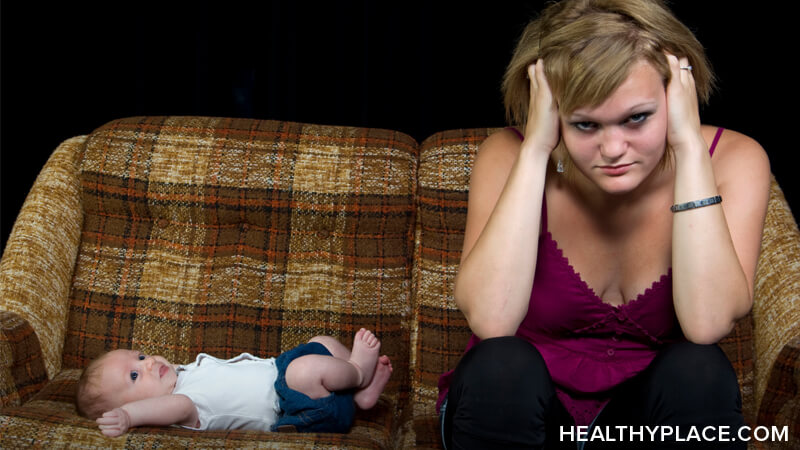What is Postpartum Psychosis?

While mood changes, crying and irritability are normal after childbirth, these symptoms disappear after two weeks for the vast majority of women. Beyond that, women can be diagnosed with the mental illnesses postpartum depression, or in rare cases, postpartum psychosis.
Postpartum psychosis is the most severe post-pregnancy illness and occurs in about 0.1% - 0.2% of women. Women most at risk for postpartum psychosis are those with a history of mental illness like bipolar disorder or those who have experienced previous postpartum psychoses.1
Postpartum Psychosis Symptoms
Postpartum psychosis often has a rapid onset. It commonly develops 2 – 3 days after childbirth and almost always happens during the first two weeks postpartum.
Postpartum psychosis is considered to be an extreme form of postpartum depression and symptoms of postpartum psychosis mimic those of bipolar mania. Postpartum psychosis can appear like a quickly evolving mania or mixed mood state. Postpartum depression psychosis symptoms include:2
- Extreme agitation and anxiety, restlessness
- Confusion or disorientation
- Insomnia
- Irritability
- Rapidly changing depressed or elevated mood
- Disorganized (unusual, often illogical) behavior
- Delusions, often relating to the baby
- Hallucinations, primarily auditory
- Voices telling the mother to harm or kill the infant or herself
What is the Treatment for Postpartum (Post Partum) Psychosis?
Postpartum psychosis is considered an emergency as the rate of infanticide among those with postpartum psychosis is as high as 4%. Due to the severity of symptoms and the possibility of harm to the mother and child, postpartum psychosis should be treated in a hospital setting.
Postpartum psychosis is mostly seen in those with bipolar disorder, so treating postpartum psychosis is similar to treating bipolar mania. Treatment for postpartum psychosis includes:
- Medication treatment: a mood stabilizer like lithium, valproic acid (Depakote) or carbamazepine (Tegretol) in combination with antipsychotics and benzodiazepines (sedatives).
- Electroconvulsive therapy (ECT): known to be a fast, effective and well-tolerated treatment. Often bilateral ECT (a stronger form of ECT) is performed.
APA Reference
Tracy, N.
(2022, January 3). What is Postpartum Psychosis?, HealthyPlace. Retrieved
on 2026, January 18 from https://www.healthyplace.com/depression/postpartum-depression/what-is-postpartum-psychosis



